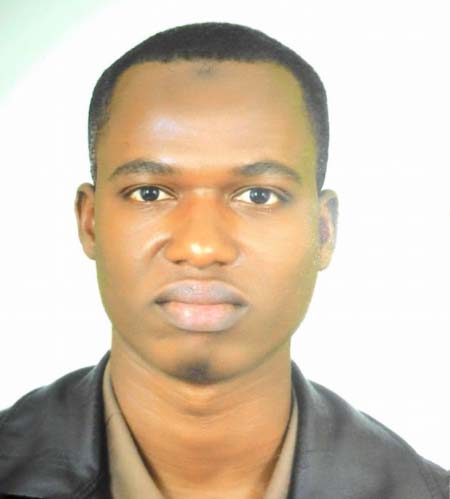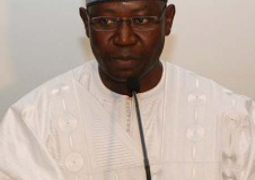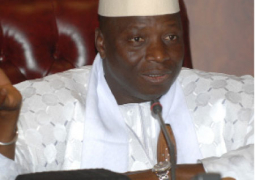
The
dust of the political tsunami caused by the UK`s vote to leave the European
Union (EU) is at least settling. There is a new Prime Minister, the Pound
Sterling is finding it ground little -by -little after it suffered its biggest
loss in more than 30 years. And the market which was “rattled” by the outcome
of the vote is picking up, but uncertainty still looms large and the economy is
teetering on the brink of recession prompting Governor Mark Carney of the Bank
of England to cut interest rates to 0.25% for the first-time since 2009.
Following
Brexit, Prime Minister David Cameroon who lost the battle of the idea decided
to step down to allow fresh blood to trigger Article 50 of the Lisbon Treaty
that will kick-start the formal negotiation process of British divorce from the
EU. This ends Mr Cameroon’s six-year tenure as prime minister of UK.
No
sooner had he ended making his resignation speech at No. 10 Downing Street in a
quaver and a cracking voice than the debate about his legacy as PM started not
just about his domestic achievements and shortfalls. But also what he has
bequeathed to the world. His legacy like
many is not near perfect, but it is head and shoulder above most.
As
Prime Minister of four nations-in-one, UK, and the leader of the
“compassionate” Conservative Party, David Cameroon has some astonishing
accomplishments in many African countries such as Rwanda, Somalia, Sierra
Leone, but also dark history in today’s war heated Libya which was once a
promising and vibrant nation.
Africa
is among the regions that suffered the most as a result of centuries of British
colonial rule and exploitation. This was preceded by decades of the
Trans-Atlantic Slave trade that bereft Africa many of her energetic youth and
highly promising talents. From the small riverine nation of The Gambia in the
West, Kenya in the East to Botswana in the Southern of Africa all were trapped
by the gigantic net of British colonial rule.
By
the end of the second half of the 20th Century, British rule in Africa was
history. Since then successive British PMs have different approaches in dealing
with the continent.
David
Cameroon inherited the premier at a time of grave financial difficulties and a
general feeling of donor fatigue. Moreover, countries in the advanced world
were still reeling or recovering from the contagious effect of the 2008 global
financial crisis that left their economies in the doldrums with sky-high
unemployment.
Despite
all these grave challenges, UK under David Cameron kept her promise to give
0.7% of her Gross National Income (GNI) to the international aid and
development, an agreement reached by G8 leaders in Germany in 2007. It was at this 2007 meeting that the G8
leaders proposed that the solution to Africa’s problems should be a massive
increase in foreign aid something akin to the Marshall Plan, but only the UK
kept this promise. This has had a huge impact on poverty alleviation and
boosting the economic growth of many countries.
Developed
countries whitewashing Africa with aid money is not a new phenomenon. In fact,
between 1960 and 2003, African governments received more than 600 billion
dollars in aid. But chronic poverty remains pervasive during this period as
well. Many critics argued that flooding the continent with foreign aid monies
is not the solution to rescue Africa out of the yolk of poverty. But what is
new and what makes a striking difference with British aid money is the approach
and its design.
Rwanda
is the exceptional and glaring case in point where UK aid money has helped
transformed the country that was almost brought down to its knee during the
1994 genocide that killed millions. There was a steady flow of UK’s aid money
to Rwanda until 2013 when the government of Rwanda came under huge criticism
for supporting the M23 rebel group in neighbouring DR Congo which resulted in
partial suspension of some foreign aid to Rwanda. Interestingly enough, the
flooding of Rwanda with British and other countries aid money helped the
country to turn a new page and become the envy of many countries in the region.
The country has seen a spectacular record in school enrollment and a remarkable
stride in combating child mortality rates.
It’s
of course, unfair to credit Rwanda’s success story entirely to UK funding, but
is also equally unfair to fail to acknowledge the importance the aid to the
country’s rapid transformation.
Under
the leadership of Andrew Mitchell as the International Development Secretary,
Britain aid money started to change lives for good.
Mitchell
who has vast experience working in Africa as a development aid workers is also
the founder of Project Umubano, a Conservative Party- social action project in
Rwanda and Sierra Leone, launched in 2007.
Rather than lecturing Africans about good governance and human rights,
Mitchell used his wealth of experience as a volunteer in Rwanda to make foreign
aid more effective and beneficial.
At
the heart of his operational policy was transparency and accountability. This
strategy had worked well and citizens of Rwanda, for example, have reaped the
best out of British aid money.
For
many people around the world, Somalia is synonymous with Al Shabab and Piracy
in the Gulf of Eden. Somalia as a state ceased to exist in 1992, after the
collapse of the communist rule of Siad Barre. But for the past few years, the
international community in collaboration with the AMISOM, African Union
Peacekeeping Mission in Somalis, has driven Al Shabab out of the capital,
Mogadishu. This gave the government space and time to ponder on how to rebuild
the country.
The
EU is the single-largest donor to Somalia, and UK under David Cameroon is the
third biggest contributors to the European Development Fund (EDF), after
Germany and France. The EU has pushed
hard to make sure that the AMISON is given the necessary funding and
wherewithal to bring peace and stability in Somalia.
A
modicum of peace and hope has returned to the war-stricken East African Nation.
In April 2013, in a hugely symbolic, but significant gesture William Hague,
then Foreign Secretary of the UK, raised the Union Jack in Mogadishu to re-open
the British embassy. This shows the
world and the business community that Somalia is ready for business and
investment. The following month the UK government and Somalia co-hosted in
London one of the biggest conference on Somalia to coordinate and galvanise
support in helping Somalia to rebuild after decades of war.
Also,
in 2014 Africa saw the biggest and the deadliest outbreak of the Ebola virus.
It started from Guinea and suddenly spread to Liberia and Sierra Leone and left
at least 10,000 people dead. David
Cameroon, appalled by this tragedy, dispatched a battalion of British nurses,
soldiers, doctors and volunteers to help arrest the spread of the virus and
keep it at bay. This was a game-changer in fighting the diseases that literally
overwhelmed the World Health Organisation and the poorly build health sector of
Sierra Leone.
Libya
will be one of the legacies that will earn David Cameroon more opprobrium than
approbation. He will be remembered for leading the coalition alongside the
former French President Nicolas Sarkozy; a political coalition which smashed
and killed colonel Gadhafi. Evidently, the aftermath of Gadhafi has left the country
shambles. A trouble which the so-called revolution is also feeling its
pain.
The
post-revolution planning in Libya was so slapdash that it now became a breeding
ground for would-be terrorists. And further create a safe haven for human
traffickers and its related social vices.
countries
and humanitarian organisations for not doing enough in settling the Syrian
refugees fleeing the civil war in Middle East ravage nations.
Many
Africans will hiss and frown upon hearing the name David Cameron, particularly
among conservatively devout Christians and Muslims for legalising same-sex
marriage in the UK. This campaign was side-by-side championed by US president
Barack Obama in selling the agenda to African countries. This went futile as it
was vehemently rejected in African soil by all faiths.
In
a continent of 54 nations truly heterogeneous with great variations in
physical, economic, political and social dimensions, it is next to impossible
to touch the lives of everyone in every country directly or indirectly. However, David Cameroon’s policies towards
Africa have indeed had a huge impact. It is now up to his successor, Theresa
May, to build on that legacy and forge a better ties between the fastest
growing continent in population and economics term and the world’s fifth
largest economy.
The
author, Ousman Bah, is a student doing his Master’s in Political and Social
Sciences at Gazi University, Turkey




